- Home
- Tanya Huff
The Heart of Valor Page 14
The Heart of Valor Read online
Page 14
“The di’Taykan know how to work with snow,” Major Svensson acknowledged, accepting his meal with a not entirely hidden grimace. “Let’s hope none of them get lost on their way back from the latrine, or they’ll never find it again,” he added, waving off Torin’s offer to switch meals.
“No maskers inside the shelter, sir, so I doubt it.”
“I’d like to take some readings as it gets colder, Major.” Dr. Sloan stared suspiciously at her peppered noodles, before winding one around her spork. “Do you think you could keep your mitten off for—oh, say—forty minutes?”
“After I eat.”
“Of course. But before you spend another hour behind a bush.”
“An hour?” Torin asked, not liking the sound of that considering how long he’d been out of the shelter less than eighteen hours earlier.
The major sighed. “I wasn’t behind a bush for an hour.”
“Fine, you chatted with a few recruits after you finished. You were behind a bush for fifty-five minutes.” Waving a spork of noodles, the doctor continued before he could protest again. “I’d also like to take a few readings on your bowels. We regrew your lower intestine from scratch, and while it doesn’t involve any new technology, it could be . . .”
“Dr. Sloan!” All three of them rose as Kichar charged through the trees toward them. “You’re needed ma’am! Staff Sergeant Beyhn is having a seizure!”
SEVEN
TORIN ROCKED TO A STOP almost on Dr. Sloan’s heels and stared at the fifteen di’Taykan surrounding Staff Sergeant Beyhn’s shelter. Just under half of Platoon 71 was di’Taykan, standard numbers for infantry, and grouped together they made an imposing—and colorful—barricade. Somewhere in the group, Masayo could be heard praying; Torin hoped she was praying that the whole multicolored lot of them would come to their senses before bad things happened.
Sergeants Jiir and Annatahwee appeared to the left of the shelter, skirted the outer di’Taykan, and hurried around to Torin’s side.
“They won’t let us in,” Jiir snarled, his lips all the way off his teeth. “I don’t want to start anything, but . . .”
“But we can hear the staff sergeant in there, and he doesn’t sound good,” Annatahwee finished. “His med-alert went off about fifteen minutes ago, but the readings don’t make any sense.”
“Give it to me!” Dr. Sloan threw out an imperious hand.
When the major nodded, the sergeant handed Dr. Sloan her slate.
“Yes,” she muttered a moment later, staring down at the screen, “Saying these don’t make any sense is an understatement.” Her head snapped up at the sound of an extended moan. “That’s it. I’m . . .”
“I’m sorry, Dr. Sloan.” Jonin stepped away from the others—far enough for separation but close enough to maintain the protection of numbers. “We can’t allow you to come any closer.”
“Don’t be ridiculous.” She took a step left, then a step to her right, a substitute for forward motion. “If the staff sergeant has had a seizure . . .”
“It wasn’t a seizure. Staff Sergeant Beyhn’s condition is purely a Taykan matter.”
“Staff Sergeant Beyhn is a Marine, and that makes it a Marine matter.” Major Svensson pushed past Torin to stand at the doctor’s side as another moan rose from the tent in the center of the ring of recruits. “Move.”
“No, sir!” Jonin came to attention but stayed where he was, hair flipping randomly around his head. “I’m sorry, sir! But we can’t.”
“Can’t?”
“Jonin . . .” Torin drew his attention before he could answer. Everyone involved in this standoff was armed, and the di’Taykan looked spooked enough to do something stupid. Stupider. And their vision was significantly better than either Humans or Krai in low light. “. . . is this what you were worried was going to happen?”
“Yes, Gunnery Sergeant.”
“You knew about this, Gunny?” the major demanded without taking his eyes off the massed di’Taykan.
“Not exactly, sir.” She wasn’t happy about Jonin not coming to her when this became a Corps matter, as it had the moment Staff Sergeant Beyhn had become unable to do his job, but now wasn’t the time.
A third moan twisted and became a pained wail.
“Dr. Sloan, have you had Taykan patients?”
“Of course I have!”
“Jonin, Staff Sergeant Beyhn obviously needs medical attention. You lot aren’t able to provide it, or you wouldn’t all look scared shitless. Let Dr. Sloan through. No one else needs to go in.”
“This isn’t . . .”
The wail slid sideways and lifted the hair on the back of Torin’s neck. It was hard to tell, given the lack of light, but the di’Taykan closest to her seemed to be breathing heavily.
“Jonin!” The pale pink hair made Sakur easy to spot in the dusk. “We don’t know what to do! Maybe the doctor does!”
“What would a Human know?” Jonin demanded angrily, whirling to face this breach in solidarity.
“How the fuk would I know?” If Jonin sounded angry, Sakur sounded desperate. “I’m not a doctor!”
“Jonin!”
He turned and refocused on Torin.
“What do they say about corpsmen?”
“About . . . ?”
“About corpsmen, Recruit! Or weren’t you listening during training?”
“Sir!” After 122 days of training, he responded involuntarily to the tone. “That corpsmen have no species, sir!”
“Neither do doctors. Now let her in.”
For a moment, Torin thought he was going to refuse. Then his hair flattened, he nodded, and stepped aside. Behind him, the living barricade split. Every movement she made expressing her very negative opinion of the situation, Dr. Sloan stomped toward Staff Sergeant Beyhn’s shelter. The barricade closed behind her.
“You might want to mention at some point,” Major Svensson growled by Torin’s ear, “that I outrank you.”
“They’re recruits, sir,” Torin reminded him at the same low volume. “Officers are beyond their experience. NCOs, they understand.”
“Your thoughts on what we should do about this?” He jerked his head toward the massed di’Taykan.
“I think we should break it up, sir.” The longer it continued, the worse it looked to the rest of the platoon.
“It’s all yours, Gunny.”
“Thank you, sir.” She meant it, too. The major stepping back made her job easier. “All right; Jonin, Sakur, Lirit—take up perimeter positions around Staff Sergeant Beyhn’s shelter! The rest of you . . .”
The southwest perimeter pin went off.
“. . . rejoin your fireteams, now! Defensive positions! Move!”
They moved. Inanimate objects moved when she used that tone.
Southwest was the lake.
“Sergeant Jiir! Light it up!”
She heard the sergeant yell, “Stone!” and a moment later a flare exploded over the ice.
“Holy fuk!”
Torin didn’t recognize the voice, but it was a fair response. What was a tank doing out there? Squinting into a freezing wind, she searched her scanner for air support or drones. Nothing. So the more relevant question would be: why was a tank out there all alone?
The first shell went long. One of the sergeants must have activated the screamer in the northeast perimeter pin and messed up the shell’s guidance system, but even half a kilometer on the far side of the camp, the explosion was still nearly deafening.
“Son of a fukking bitch!” Major Svensson rose up onto his elbows to stare over the rock they’d dropped behind. “That was no thundershot!”
Thundershots, a much larger version of the grenades thrown by the drones, were sound and fury and impressive pyrotechnics but essentially harmless if everyone kept their heads.
“Sounded like an HE antitank round, sir.”
“You hiding a tank you’re not telling me about, Gunny?”
“No, sir.”
“Then what the hell
is going on here?”
Her scanner picked up no life signs. The tank was essentially a big drone. “Seems like Crucible’s trying to kill us, sir.”
The second shot blew a hole in the woods to the west.
Breathing heavily, Sergeant Jiir dropped to the snow beside her. “Serley thing’s firing antitank rounds! There must’ve been a screwup in the load commands.”
“Why does the Crucible even have HE rounds in a training area?” the major asked tightly.
“We use them sometimes to make a point, sir.”
“You might want to rethink that, Sergeant.”
“Yes, sir. What do we do?”
“We stop it,” Torin growled.
“With sevens and nines? No way, Gunny! Not at that distance!” Scanner down, Jiir nodded toward the tank. “There’s a 20 mm machine gun top mounted. We get close enough and it’ll read the trainers and pop us off.”
“Then we don’t take out the tank; we take out the ice.”
“With what?” Jiir rose to gesture out at the ice, remembered why that was a bad idea, and ducked back down again. “It’s holding a tank! A grenade won’t crack ice that thick, and we’d be sitting vertak getting close enough to set a demo charge.”
“Give me a perimeter pin. Stone!” Prone behind a ridge of frozen beach gravel, the big Human turned his head at the sound of his name. “I need your 9.”
Jiir pulled a pin out of his vest as Stone cleared two meters of open shoreline between one heartbeat and the next and dove behind the rock.
“Activate the pin, Sergeant.” Torin handed Stone her KC-7 and hooked the KC-9’s strap over her shoulder. Plucking the activated pin from the sergeant’s palm, she dropped it down the barrel.
“Never do this,” the major mentioned conversationally as she got to her knees and raised the weapon to her shoulder. “The barrel’s likely to explode.”
“But . . .”
A third shell exploded in the trees southeast of the camp. Given the tank’s firing pattern and their position outside the southwest pin, they’d just run out of options.
“The Gunny’s done this before. Heads down!”
Problem was, if the pin jammed, the barrel could explode. It wasn’t likely given relative sizes and the stupid-proof construction of the weapon, but it was possible. Weighing that possibility against the certainty that the tank would wipe out the camp and everyone in it with its next couple of shots, Torin aimed low and pulled the trigger. A spray of ice six meters in front of the tank and seventy degrees off marked where the pin impacted. “Set the screamer!”
“Impact probably destroyed it,” Jiir muttered, jabbing at his slate.
“There’s a chance,” Torin admitted. The pins were Marine-resistant, but very few things were built Marine-proof. She watched in her scanner as the tank’s big gun pivoted around to the right searching for this new perimeter pin. Confused by the screamer, it fired.
The shell slammed through the ice.
The recruits holding defensive positions along the shore were completely silent.
Water and ice together muffled the explosion.
Half a heartbeat later, sounding like a platoon’s worth of KC-7s all firing at once, the ice began to crack. With a boom that echoed off the trees, the rear of the tank dropped.
The tracks spun, grabbing air and spraying water up over the tipping slab.
Three seconds later, it was all over. The only sound on the lakeshore was the sound of waves slapping against the hole in the ice.
“On Carlong,” Major Svensson said into the silence, “there was a big old ice wall holding back a river. Gunnery Sergeant Kerr fired a perimeter pin at it, and the enemy’s mortars took it down, wiping out the leading edge of their advance. Bought us a few hours where no Marines died. She was a staff sergeant then, of course.”
“Of course,” Jiir muttered, staring out at the spreading patch of open water. “Aren’t tanks supposed to be waterproof?”
“Not as much as they’d like you to think. I’ll keep this for a while,” Torin told Stone, gesturing with the KC-9 as the recruit got slowly to his feet. “I want to make sure I didn’t damage it. All right, people!” She raised her voice, letting the sound lift the surrounding fireteams up onto their feet. Beyhn was out and Crucible was using live ammo; she’d be damned if she was giving way to a pair of sergeants. “I want a tightened perimeter and damage reports. Move!” She turned to the major. “That last shell sounded too close to the camp—the firing system had probably started to compensate for the screamers. We may have injured.” Had she been part of the platoon, she’d know because the medical information on every recruit would have been in her slate. As it was, she knew the major hadn’t been hit, and that was it.
“Deal with it, Gunny.” He turned back toward the camp. “As soon as I get the codes out of Beyhn’s slate, I want a few words with our eyes in the sky!”
“Yes, si . . .”
“Gunny?”
Momentarily unable to form the words, Torin pointed past his shoulder at the rising streak of light drawing a gleaming, deadly line against the night sky.
“That can’t . . .” He shook his head. “. . . can’t be what it looks like.”
“I hope you’re right, sir.” Because it looked like a surface-to-air missile.
A moment later, pieces of the OP began to rain fire through the atmosphere; shooting stars against the darkness that represented the deaths of the eleven Marines and six Navy corpsmen who had been on board when the missile hit. There could also have been up to a dozen wounded recruits from the other three platoons dirtside in the sick bay—no way to tell watching from the ground as the station fell and burned.
All along the shore, Marines who’d been on their way back to camp stood and stared at the sky.
Torin took a deep breath and when she was certain nothing but what she intended would show in her voice, snapped, “I could have sworn I gave you lot something to do!”
“They blew up the Orbital Platform, Gunnery Sergeant!”
“Someone did,” she allowed. “And there’s not a damned thing we can do about it, but we can do something about a blasted perimeter and possible casualties, so move!”
They moved.
When it was just her and the major on the frozen beach, Torin glanced at her sleeve. “They timed the missile for just after the NirWentry’s jump to Susumi.” She forced her teeth to unclench, forced her tongue away from her implant. The upgrade had reserve power, but who the hell was she going to talk to. “Eight days before another ship’s in system.”
“The OP had a Susumi beacon,” Major Svensson said in the same quiet voice. “They might have had time to get a message off.”
“Yes, sir. That’s possible.”
But neither of them believed it.
* * *
A splintered branch about twelve centimeters long and less than one in diameter had been flung like a dart under the edge of Recruit di’Lammin Oshyo’s helmet, into and through her right eye socket, and then her brain.
“There’s no exit wound.” Torin straightened and wiped wet hands on her thighs. “Probably splintered further when it hit the back of her skull.”
“You keep telling them to keep their helmets on,” Sergeant Annatahwee muttered. “Like it fukking matters sometimes.”
There was nothing Torin could say to that, so she moved on. Soon Sung Cho, the recruit positioned next to Oshyo, had taken a facial laceration from a second piece of flying debris. It had opened his cheekbone deep, but Cho had pinched the wound closed and sprayed a layer of sealant on it. A handful of snow had scrubbed the blood from his combats. One injury, one death, one tank; it could have been a lot worse.
Perimeter pins had been reset and teams two/one and two/two—less Lirit who remained at Beyhn’s shelter—were standing the first four-hour watch, individuals placed close enough together that their lines of sight overlapped. If tanks were out there firing live rounds, bets were off on what else might show up. Perimeter p
ins might no longer be enough. Moonlight and starlight reflected off the snow, and the sentries navigated the bands of shadow between the trees with their scanners down, using as little light as possible.
“Camp is secured, sir.”
“Good.” Major Svensson glanced toward the lake, just barely visible through the trees. “What the hell do you think is going on, Gunny? This is more than just a glitch.”
“Best guess: someone has hacked Crucible’s system, sir.”
“The Others?”
Torin thought a moment before answering. When the Others came into Confederation space, they invaded to advance their perimeter. If Crucible was suddenly in contested real estate, then the Corps had a lot more to worry about than the loss of its training facility. If the Others had developed a new battle plan, however, a plan to take out the Marines at the source . . . “This is a little subtle for them, sir, but they are who we’re fighting. There’s no ship in system eight days out of ten; if they timed it right, they’d only have the Orbital Platform and its satellites to avoid—easy enough for a good pilot in a small VTA. Once down, they find the nearest CPN . . .”
“Not exactly difficult,” the major grunted, pulling off helmet and toque as one unit and running a hand back over his head. “The damned things aren’t more than a day’s march apart.”
“In case something goes wrong.”
He raised a pale brow. “Where wrong isn’t referring to antitank rounds being fired at recruits?”
“Yes, sir. The nodes can’t be too well hidden, or they wouldn’t be very useful in an emergency. Once the Others have cracked the system, they wait until the Navy’s gone, then they blow the OP and control the satellites with an uplink from the ground. They have surveillance, the tank proves that—they know where we are—and at least some control of the peripherals.”

 Child of the Grove
Child of the Grove Blood Lines
Blood Lines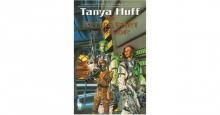 What Manner of Man
What Manner of Man Blood Pact
Blood Pact Blood Debt
Blood Debt The Wild Ways
The Wild Ways Blood Trail
Blood Trail Blood Shot
Blood Shot Wizard of the Grove
Wizard of the Grove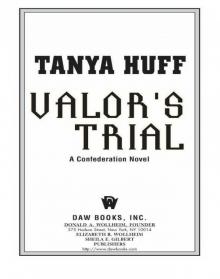 Valor's Trial
Valor's Trial The Privilege of Peace
The Privilege of Peace A Peace Divided
A Peace Divided Three Quarters
Three Quarters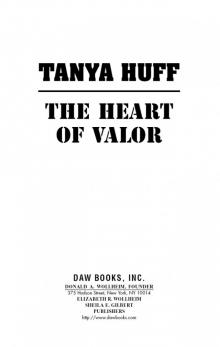 The Heart of Valor
The Heart of Valor No Quarter
No Quarter The Demon's Den and Other Tales of Valdemar
The Demon's Den and Other Tales of Valdemar Enchantment Emporium
Enchantment Emporium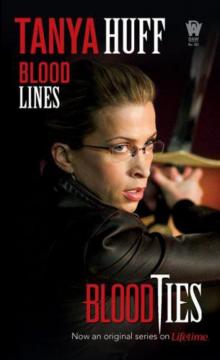 3 Blood Lines
3 Blood Lines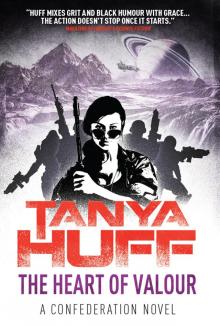 The Heart of Valour
The Heart of Valour Smoke and Ashes
Smoke and Ashes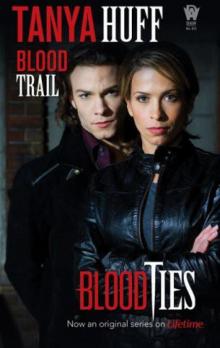 2 Blood Trail
2 Blood Trail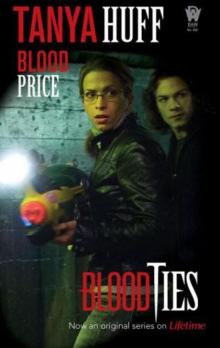 1 Blood Price
1 Blood Price Summon the Keeper
Summon the Keeper The Future Falls
The Future Falls Third Time Lucky: And Other Stories of the Most Powerful Wizard in the World
Third Time Lucky: And Other Stories of the Most Powerful Wizard in the World The Second Summoning
The Second Summoning Fifth Quarter
Fifth Quarter The Enchantment Emporium
The Enchantment Emporium An Ancient Peace
An Ancient Peace Blood Bank
Blood Bank February Thaw
February Thaw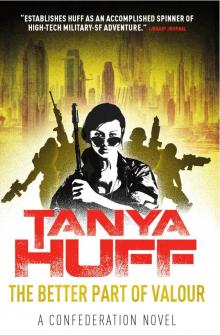 The Better Part of Valour
The Better Part of Valour The Silvered
The Silvered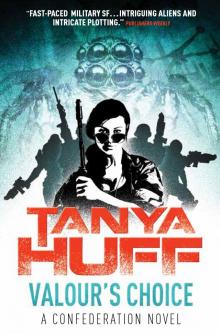 Valour's Choice
Valour's Choice Smoke and Shadows
Smoke and Shadows Sing the Four Quarters
Sing the Four Quarters 4 Blood Pact
4 Blood Pact Long Hot Summoning
Long Hot Summoning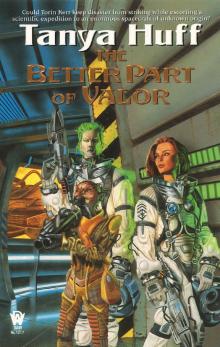 The Better Part of Valor
The Better Part of Valor Scholar of Decay
Scholar of Decay He Said, Sidhe Said
He Said, Sidhe Said Wild Ways
Wild Ways Gate of Darkness, Circle of Light
Gate of Darkness, Circle of Light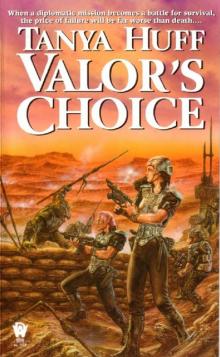 Valor's Choice
Valor's Choice Swan's Braid and Other Tales of Terizan
Swan's Braid and Other Tales of Terizan